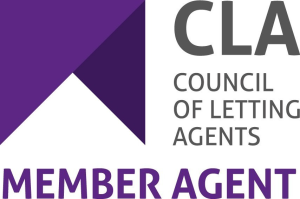Do You Have ANY Questions? We'll Answer Them Here!
HELPING OUR TENANTS
It’s often said that home is where the heart is. So why do so many letting agents seem so heartless? We understand that a rented property is so much more than a house or a flat; it’s your home. As a tenant, you should feel comfortable, safe and appreciated.
Every one of our properties has a Property Manager who knows the property, the tenant and the landlord. Good communication and long-term relationships are crucial to the smooth running of our business so we’re open and honest in helping our tenants understand their rights and responsibilities throughout the letting process. In line with our company values we’re always work towards finding a positive solution whenever we’re faced with a tenancy or property maintenance issue.
Happy tenants make our working day a pleasant one and long-lasting tenancies make for happy landlords and a happy letting agency. Our years of experience in the Scottish lettings market have taught us that communication and responsiveness are key. While it is important for us to be proactive in things like property inspections and upgrading works, it’s when our tenants need us that defines whether we succeed or fail as a letting agent.
All new tenancies in Scotland are Private Residential Tenancies (PRT), introduced in December 2017. This replaced most other tenancy types for private rented homes and offers open-ended agreements with improved tenant protections.
You must give at least 28 days’ written notice, (plus an additional 2 days for administration, effectively 30 days) unless your landlord agrees to a shorter period. The notice must be in writing and include the address, all tenants names and the date you intend to leave.
Yes, but they must give 3 months’ written notice and can only increase the rent once in a 12-month period.
Yes, your landlord must lodge your deposit with an approved tenancy deposit scheme within 30 working days of the tenancy starting. You’ll also receive key information about the scheme used.
No. They must give at least 48 hours’ notice (in writing) unless it’s an emergency. Entry should be at a reasonable time of day, and you must give permission.
You must:
Pay rent on time
Look after the property
Allow access for inspections and repairs (with notice)
Not cause nuisance to neighbours
Report damage or repairs promptly
The landlord is responsible for keeping the property wind and watertight, and maintaining the structure, plumbing, heating, and appliances they provide. You must report any issues promptly.
If you have caused damage to the property or its contents, even if it’s an accident, it is your responsibility to have it repaired. Get in touch, we can arrange the repairs, however, you will need to pay for it.
No. Your landlord must give you a formal notice to leave, and if you don’t move out, they must apply to the First-tier Tribunal for an eviction order. You can’t be evicted without a legal process.
Communicate with your landlord immediately. If you fall three or more months behind, your landlord can issue a Notice to Leave, but you may be able to reach a repayment agreement or get help from advice agencies.
Tenants are responsible for council tax and utilities unless it’s included it in the rent. Your lease agreement will clearly state who is responsible.
If all the tenants are full-time students, you can apply for a council tax exemption.
Only if your tenancy agreement allows it or your landlord gives permission. Always check your agreement first and get written approval if required.
Only if they have a valid reason—e.g., unpaid rent, damage beyond fair wear and tear, or cleaning costs. Disputes can be resolved through the tenancy deposit scheme’s free dispute resolution service.
Only if your landlord gives permission. Some landlords may agree to decoration under the condition that it’s restored to neutral colours at the end of the tenancy.
Once you’ve moved out of the property and handed the keys back, we do an exit inspection to ensure that the property has been returned to us in the same condition as it was received – less fair wear and tear. If all is in order, you should get your deposit back within about a week.
Absolutely. An inventory helps protect your deposit and ensures there are no disputes over the condition or contents during or after a tenancy.
1
Book a Viewing
I’m Looking for a Property to Rent.
2
Report Maintenance
Maintenance Issue? Report a Repair Here.
3
Tenants Household Guide
Download our Tenants Household Guide





